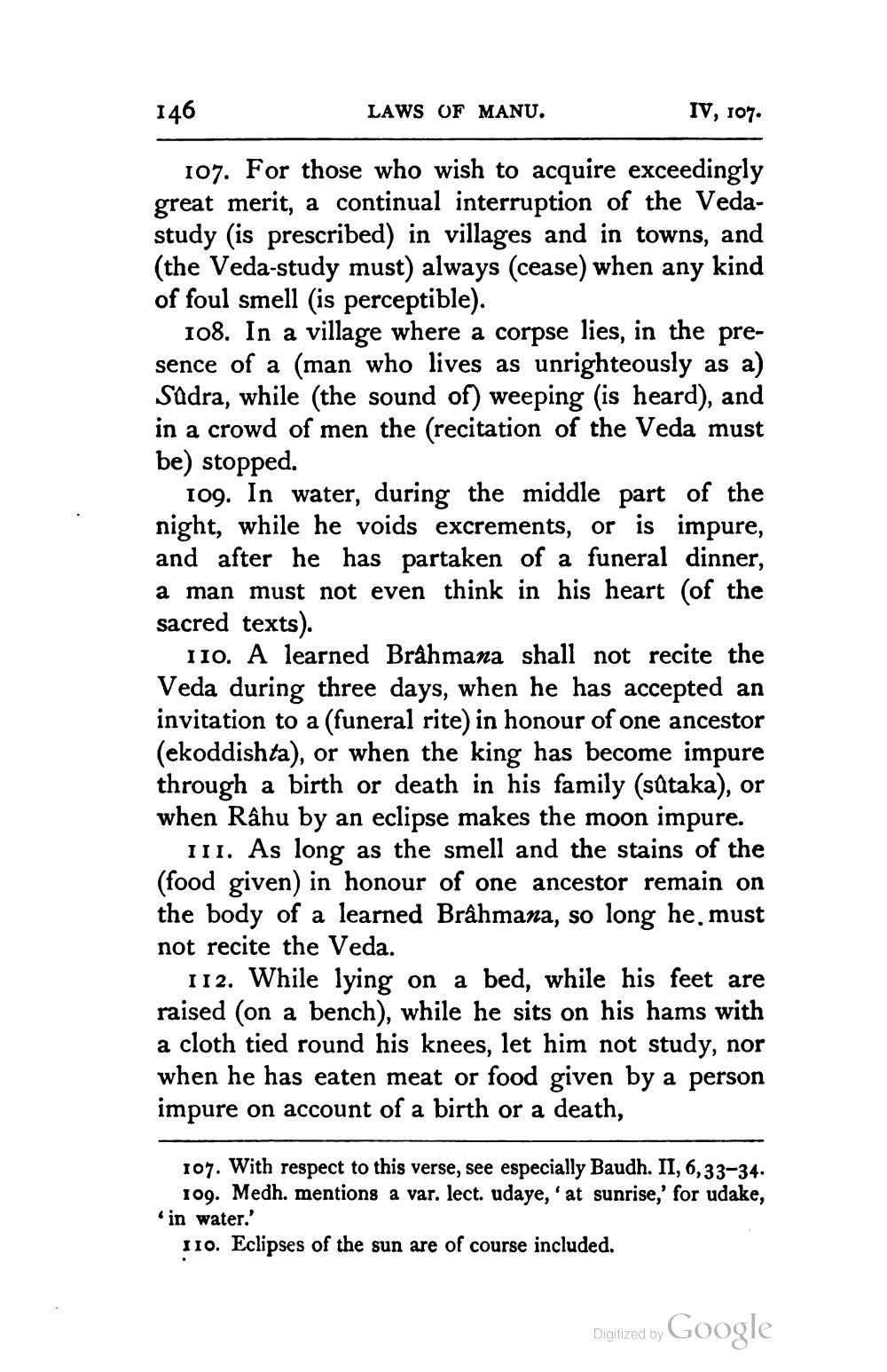________________
146
LAWS OF MANU.
IV, 107.
107. For those who wish to acquire exceedingly great merit, a continual interruption of the Vedastudy (is prescribed) in villages and in towns, and (the Veda-study must) always (cease) when any kind of foul smell (is perceptible).
108. In a village where a corpse lies, in the presence of a (man who lives as unrighteously as a) Sudra, while (the sound of) weeping (is heard), and in a crowd of men the (recitation of the Veda must be) stopped
109. In water, during the middle part of the night, while he voids excrements, or is impure, and after he has partaken of a funeral dinner, a man must not even think in his heart (of the sacred texts).
110. A learned Brâhmana shall not recite the Veda during three days, when he has accepted an invitation to a (funeral rite) in honour of one ancestor (ekoddishta), or when the king has become impure through a birth or death in his family (sůtaka), or when Râhu by an eclipse makes the moon impure.
III. As long as the smell and the stains of the (food given) in honour of one ancestor remain on the body of a learned Brâhmana, so long he must not recite the Veda.
112. While lying on a bed, while his feet are raised (on a bench), while he sits on his hams with a cloth tied round his knees, let him not study, nor when he has eaten meat or food given by a person impure on account of a birth or a death,
107. With respect to this verse, see especially Baudh. II, 6,33–34. 109. Medh. mentions a var. lect. udaye, at sunrise,' for udake, in water.' 110. Eclipses of the sun are of course included.
Digitized by Google




